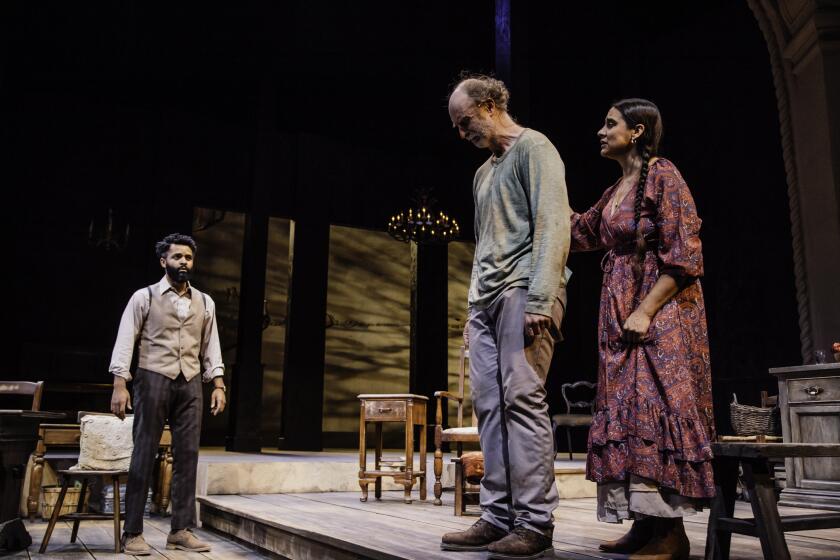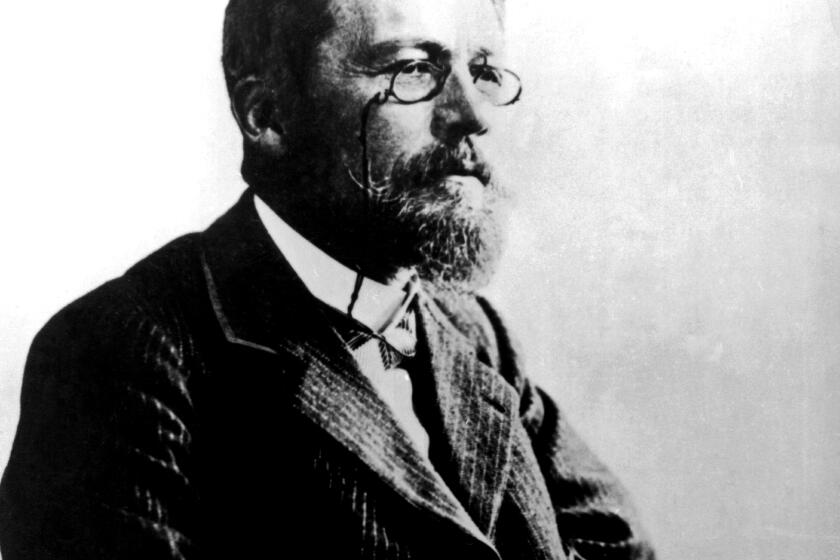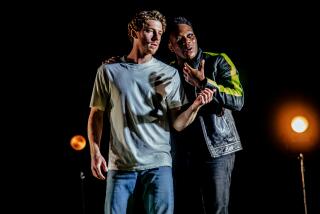The actors in Pasadena’s ‘Uncle Vanya’ ruminate, fulminate, kvetch — much like life
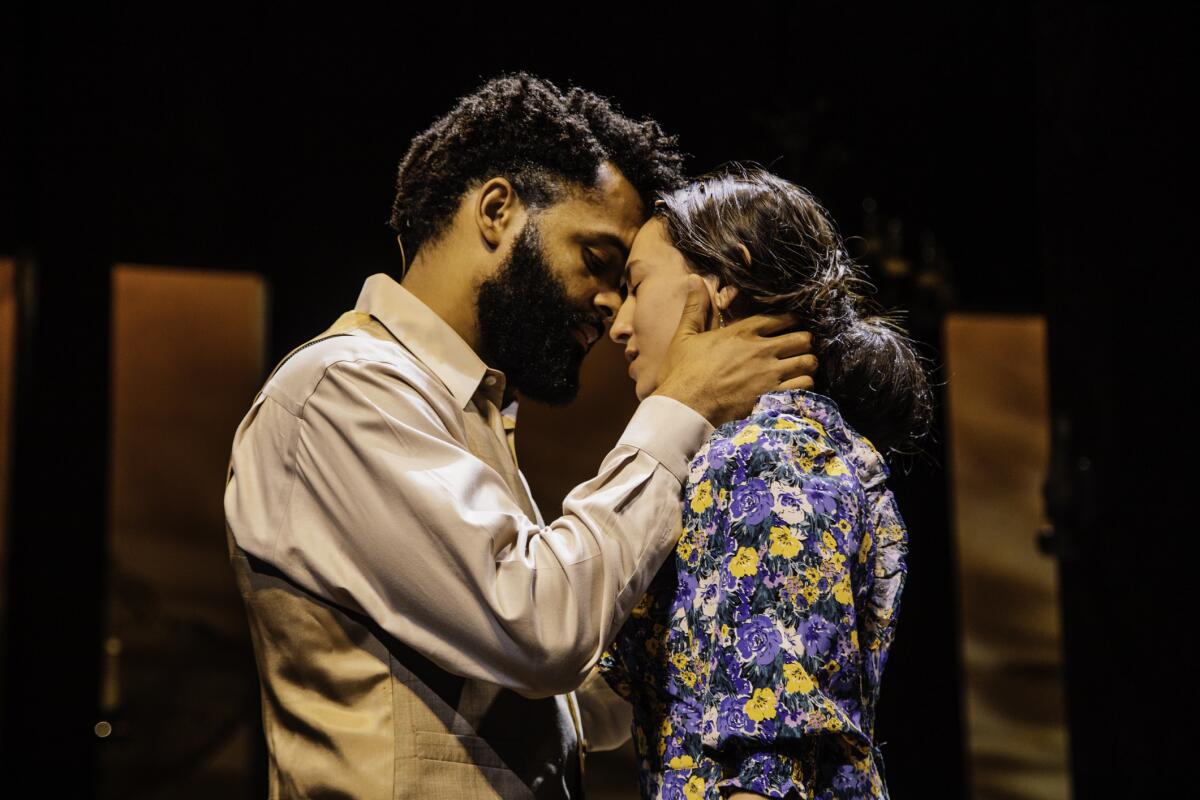
The climax of playwright Anton Chekhov’s modern-realist masterpiece, “Uncle Vanya,” occurs when the titular character, in a fit of despondence, pulls a pistol on his idol. He fires point blank and says, “Bang!” then after a pause, “Missed him! Missed again!” He then throws down the revolver and says, “Oh, what am I doing? What am I doing?”
That’s about as close as anyone comes to taking action in a play that offers none of the high stakes or heavy conflict popular in the 1890s, when it was written. Instead, it highlights nearly plotless existential crises and soul-searching introspection. Tolstoy is said to have asked, “Where’s the drama? It doesn’t go anywhere.” Chekhov called it a comedy.
Michael Michetti directs a well-tuned version of Anton Chekhov’s classic at Pasadena Playhouse.
When a new translation of “Uncle Vanya” premiered at San Diego’s Old Globe in 2018, it inspired rapturous reviews, including one in The Times noting a smoother conversational tone to the language. That production, directed by Richard Nelson, isn’t the one currently at Pasadena Playhouse. It’s a new production from the same translation, directed by Michael Michetti and starring Hugo Armstrong.
“They brought it to life in a way that feels theatrically very playable,” Michetti says of the text that eliminates Waffles, an incidental character, and streamlines the dialogue. “Some of the older translations feel academic, but this language is a combination of what’s playable theatrically, and true to Chekhov’s intention.”
The director and his team also strove for the play to have greater intimacy. They removed the first two rows at the Playhouse to bring the action down several feet closer to the audience.
“Uncle Vanya” could be called a play about nothing. Vanya lives on the estate of his widowed brother-in-law, professor Serebryakov, maintaining it with the help of his niece Sonya. When the professor comes visiting with his much younger new bride, Elena, Vanya is smitten. So is Dr. Astrov, there to care for the ailing professor. Much of the time is spent ruminating, fulminating and kvetching, kind of like life, which makes it a radical departure.
“It was very revolutionary of Chekhov to suddenly put regular folks sitting, having a regular conversation,” says Armstrong, who plays Vanya. “There’s something about the translation that plays with the musicality of that so well. Maybe they finish half a sentence, maybe they’re talking about something they don’t want to talk about. Subtext is hugely important. And the way Michael is approaching it is very much realistic conversation happening.” Hence bringing the action closer to audience members, with monologues expressed directly to them.
Anton Chekhov’s influence is seen in the Oscar-winning film “Drive My Car” and recent novels by Gary Shteyngart and Rachel Cusk. And stage productions, including a new “Uncle Vanya” at Pasadena Playhouse, are revealing just how collaboratively open his plays can be.
Husband and wife Richard Pevear and Larissa Volokhonsky are PEN Award winners for their translation of Dostoevsky’s “The Brothers Karamazov,” just one of several Russian novels they’ve tackled. With playwright-director Richard Nelson (best known for his “Apple Family” plays at the Public in New York), they have delivered a “Vanya” that reinvigorates the text.
“You look at this play now and hear Astrov’s discussion about environmental concerns, and it could have been penned last week. There’s stuff about class distinction and the kind of entitlement that comes from that,” says Michetti. “It was so ahead of its time and continues to speak to our time.”
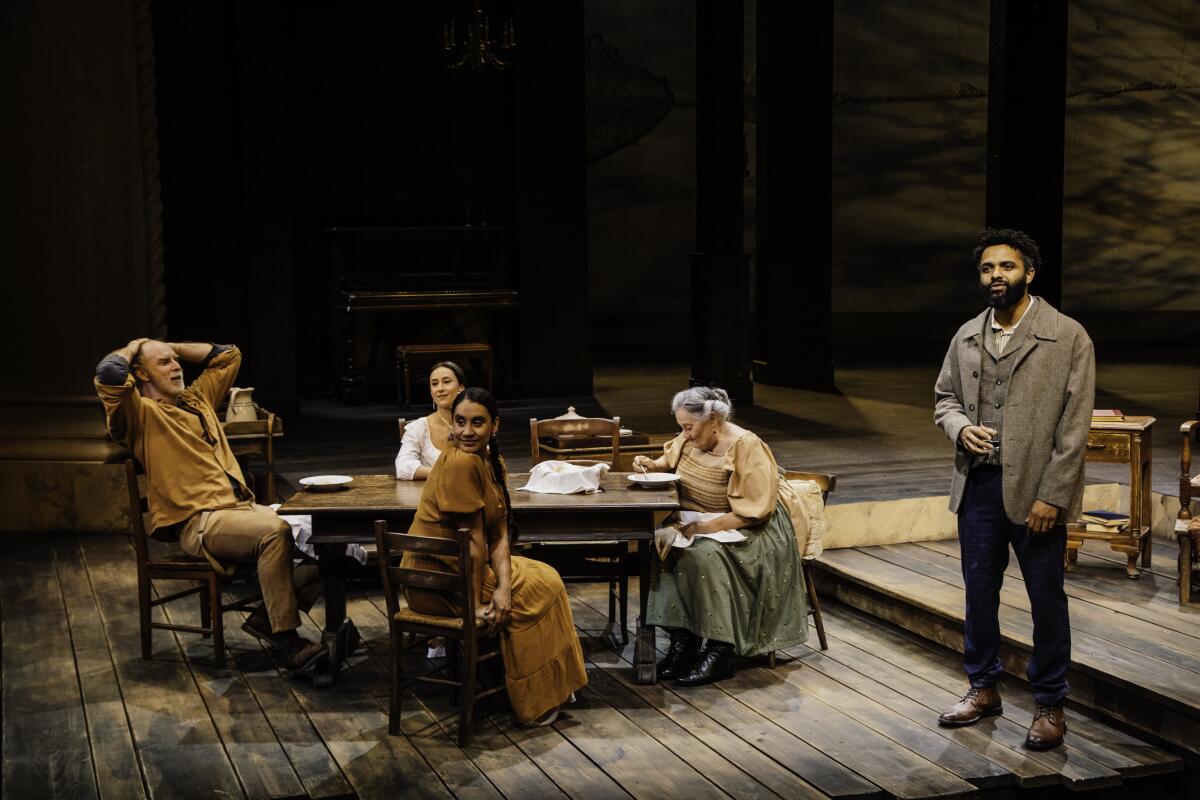
Vanya, who has dedicated the better part of his life to the estate in the belief that the professor is doing profound work, comes to realize that his idol is just another mediocrity. Shattered at the prospect of a life misspent, he is forced to reassess his path forward.
Like Chekhov’s characters isolated on the estate, many people found themselves reevaluating their lives during the COVID-19 pandemic, with some leaving their jobs in search of better opportunities during the time of the “great resignation.”
“People who had been living life in a groove had stopped to reconsider if this is their best life and wonder if the choices they have made are the right ones and if it’s too late to make new choices,” says Michetti. “There has been a lot of introspection, because the circumstances of our world have allowed or even necessitated it. Vanya ends up feeling pessimistic about whether life offers him another chapter.”
Michetti and Armstrong previously collaborated on readings but never on a production like “Uncle Vanya.” The 6-foot-4 actor and part-time donkey ranch hand auditioned for the role of Dr. Astrov but got the call for Vanya instead.
“I was never attracted to the character ’cause he’s so openly wounded. I don’t want to be around that,” says Armstrong, who happens to be the opposite body type of actors usually associated with Vanya. At first, he couldn’t see himself doing it, but then he came across a photo of Jay O. Sanders, a big guy like himself, who played the role in San Diego.
He began to consider the physical demands on Vanya, who runs the estate singlehandedly and even refers to himself as an ox. Plus, there’s the added poignancy of seeing a big guy psychically hobbled. “He should be a big fella. I think that adds to the idea of him feeling out of place,” Armstrong says. “As a big person, you can feel the world isn’t your size, that it wasn’t really made for you.”
‘Uncle Vanya’
Where: Pasadena Playhouse, 39 S. El Molino Ave., Pasadena
When: 8 p.m. Wednesdays-Fridays, 2 and 8 p.m. Saturdays, 2 p.m. Sundays, through June 26
Tickets: Start at $30
Contact: (626) 356-7529 or pasadenaplayhouse.org
Running time: 2 hours, 20 minutes (including one intermission)
More to Read
The biggest entertainment stories
Get our big stories about Hollywood, film, television, music, arts, culture and more right in your inbox as soon as they publish.
You may occasionally receive promotional content from the Los Angeles Times.
